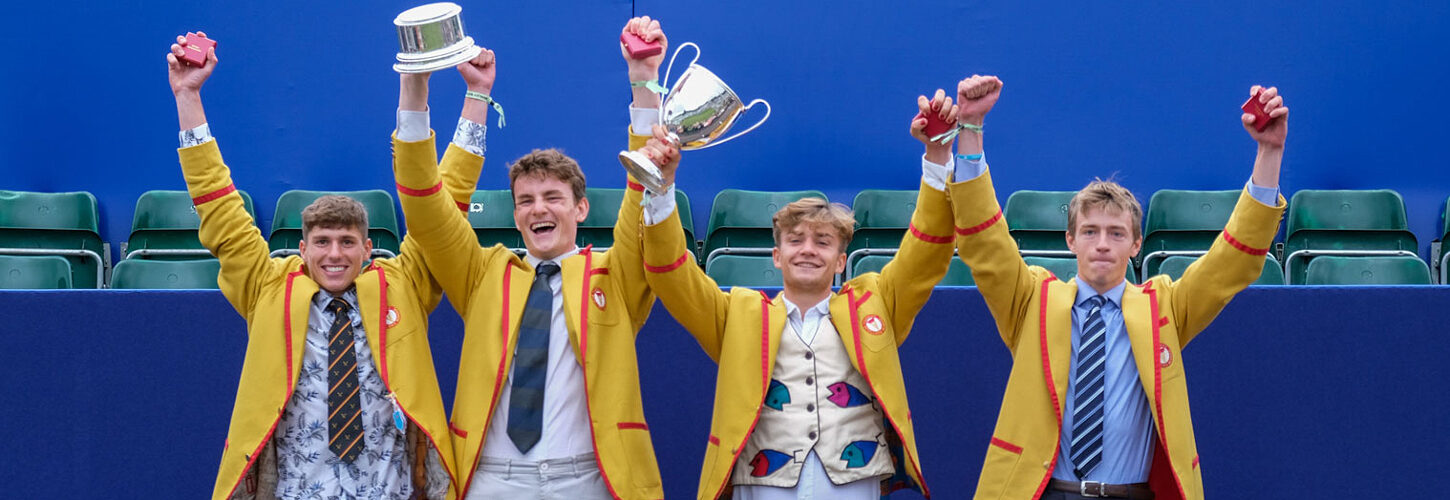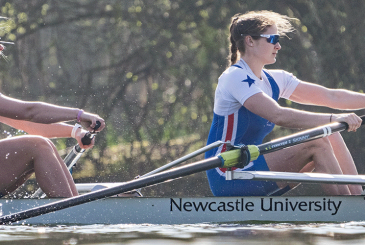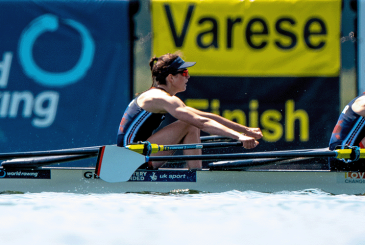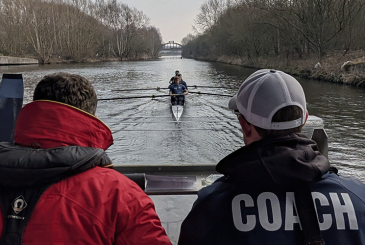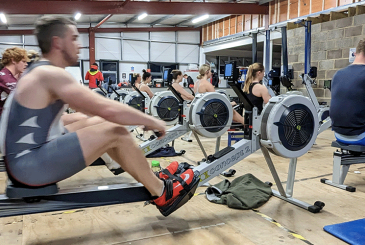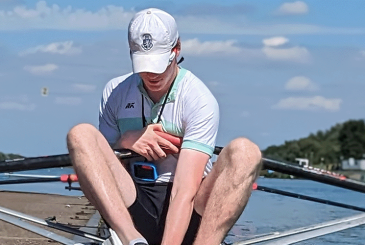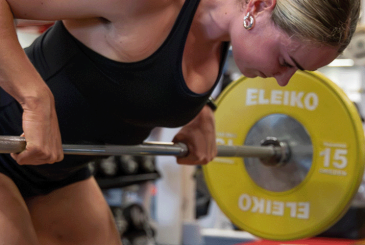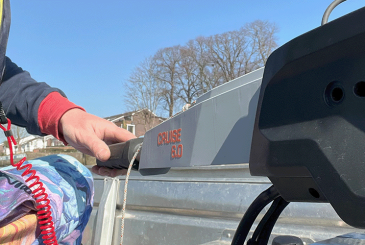While many successful junior coaches are now professional, Chris Williams of Tideway Scullers is an example of a club volunteer who has led his crew to a Henley triumph. Martin Gough spoke to him
Chris Williams is definitely part of the old school, but he is giving the new school a very good run for their money.
While many leading junior programmes now employ professional coaches, he continues to voluntarily lead the older boys at Tideway Scullers School, the club where he has been a member for almost 40 years.
And last summer, after a second COVID-hit season, they brought home the Fawley Challenge Cup for junior men’s quad sculls from Henley Royal Regatta, beating Windsor Boys School in the final.
At the turn of the year, having been nominated by members of his J16 squad, Williams won the Club Performance category of British Rowing’s Coach of the Year award, but he says of the honour: “It’s nice to have their recognition, but why we do this is to get people to improve to an extent where they can go out and win stuff and really move on.
“The Fawley quad was a real case in point. Gabriel Obholzer started with us as a 12-year-old. He was great physiologically but when he went to Great Britain J16 trials he came nearly last.
“Finn Regan and Albie Oliver have been with us since they started as 12-year olds and Matt Hansen’s best achievement before he joined us was being in a D-final at National Schools.
“The work of progressing those guys to win the Fawley in two years is just the reward that you’re looking for as a coach. That’s what it’s about.”
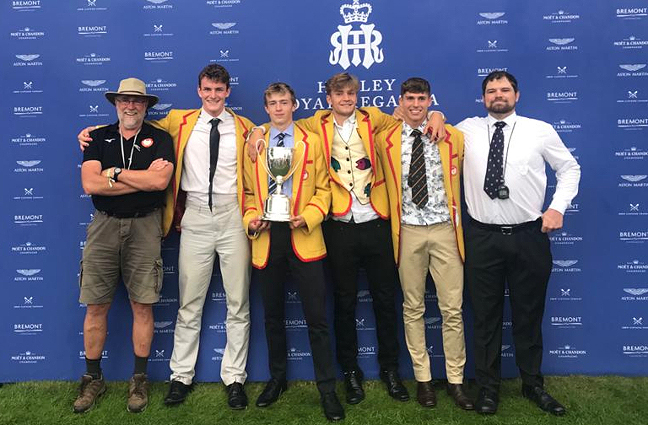
Those four boys were certainly gifted in terms of physiology: Obholzer’s 2km ergo score of 5:54.7 was a British record.
“Being in a club where there are seniors they can scull with and compete against is useful -that’s an advantage we have over schools”
However, Williams highlights their technical ability and tenacity as a key factor, explaining: “If you watch the last 100m of the Fawley [final], they kept their composure, they kept moving together, rocking over together and moving their backs through the finish. All that stayed together.
“There is probably no more pressure than the last 100m of a final at Henley. You have so many people so close to you, it’s something you’ve worked for so hard, it’s the end of your junior career. Is an Olympic final more pressurised? I guess it probably is but it’s a different sort of pressure.
“We do a lot of time on the river, racing against each other, learning how to maintain what they’re doing under pressure.”
Williams emphasises the importance of having a good technical model and feels his own sculling experience – he won the Queen Mother Challenge Cup with Scullers at Henley in 1986 – helps that.
He started rowing after leaving school at Grosvenor RC in Chester then rowed at Leeds University. He spent five years at York City before moving to London, where his coaches at Tideway Scullers included the “inspirational” Lou Barry, Alec Hodges and Marcello Minale.
Until his retirement five years ago, Williams was director of a pipeline engineering company, requiring regular trips to Saudi Arabia and Libya in between weekend coaching sessions.
When not walking his dog or out on the water, he can now be found mending boats and repairing racks, demonstrating another ethos that he feels stands these club athletes in good stead when compared to many of their rivals.
“If you’re a club athlete you’ve got to do everything for yourself,” he says. “It makes the kids laugh when [a leading school] turns up at an event and their coaches get the boats off and rig them for them.
“They’ve got to be there because they want to be there. It’s not just games at school. Some of them travel a long distance. We have one boy who comes from Guildford [30 miles away] each weekend, kids who come by train from Croydon and Streatham [an hour away]. To do that shows a lot of commitment.
“Why do I do it? It’s the satisfaction of seeing each generation through from being uncoordinated 14-year-olds to athletes”
“I think being in a club where there are seniors they can scull with and compete against is useful. That’s an advantage we have over schools. We have a lot of disadvantages: our equipment is generally terrible; the boat and blades we used at Henley were all borrowed.
“But we do have an enormous spirit within the group and it’s partly an outsiders’ spirit. The boys think everyone else has got better equipment so they have to work that bit harder to succeed.
“We also don’t train as year-groups. In an ergo you’ll have ‘Obby’ knocking a 5:50 2k next to a J15 who is doing 8:50. The best way for the younger ones to learn is to sit by the older ones. They’re mixed age-group sessions because we can’t do anything else.”
Now the class of ’21 has moved on and the challenge becomes one of rebuilding, what drives Williams to do it all over again? The draw of working with young athletes remains, but Williams is also keen to show that if he can do it, others can too.
“Why do I do it? I think it’s the satisfaction of taking each generation and seeing them through from being uncoordinated 14-year-olds and turning out athletes that can race at top junior level,” he says.
“It is hard work. You go out on a winter morning, it’s perishing cold and you’re getting wet; you think, I don’t what to do this much longer.
“But then you get around to the summer, when they’re racing and doing well, and you just keep moving. If I think about it too much I might stop!”
“I’ve had discussions with several other club coaches and said, ‘We can do it. We’re not particularly better than anyone else; we just had a particularly good group that year’.
“It’s not the province of the top schools and paid coaches to do all of these things. If you have a real crack at it, get your technical model sorted, you can get kids who weren’t maybe brilliant at J16 to be very good at J18.
“Our J16s at the moment are very good. We’re trying to get them to move on and bring the next legacy through. One group learns from the last one.
“You see a lot of club programmes where a coach stops and the programme just disintegrates. We’re trying to build a more professional structure at Scullers where one coach going out isn’t going to stop the programme and I think that’s important to leave as a building block for the future.”
Main photo: Henley Royal Regatta


